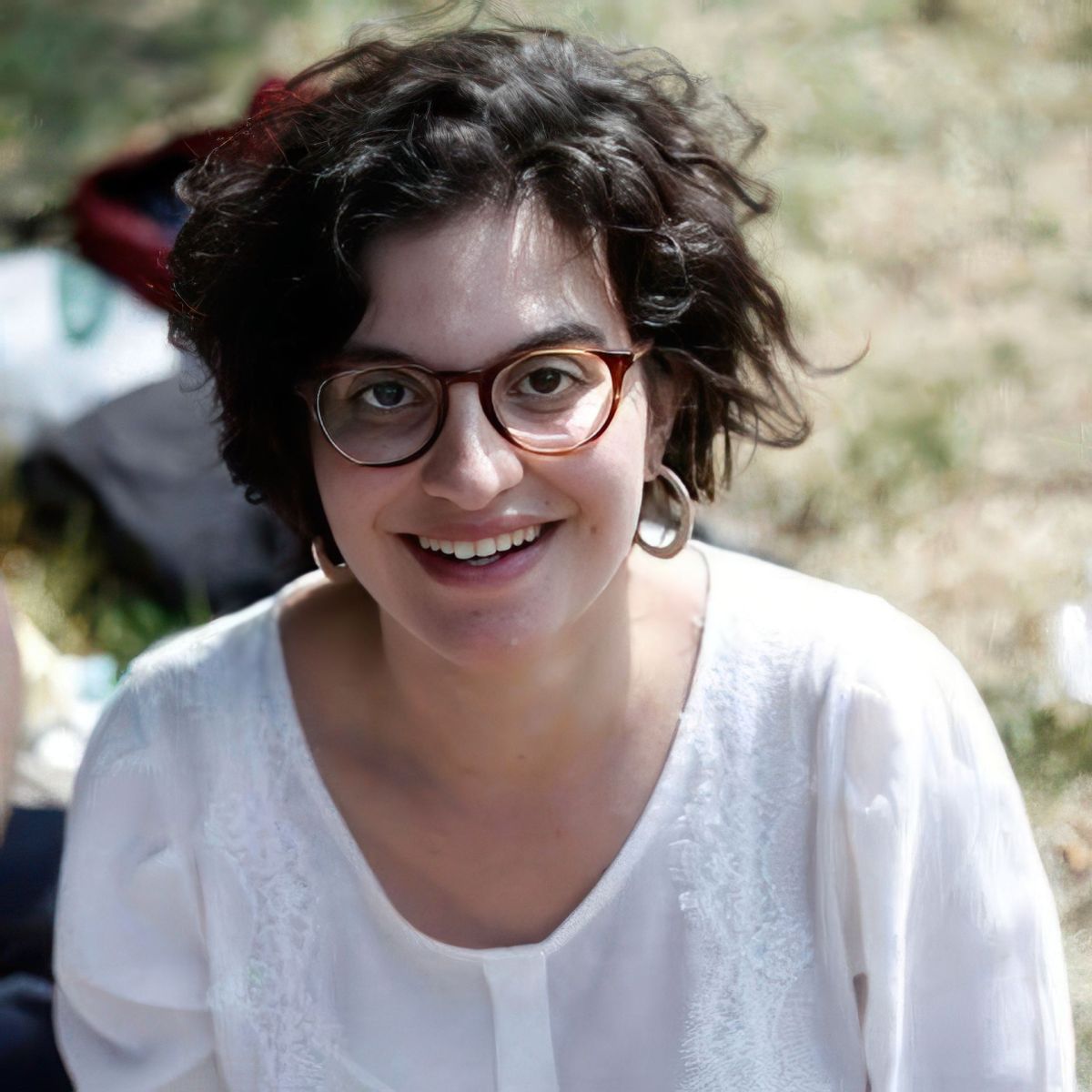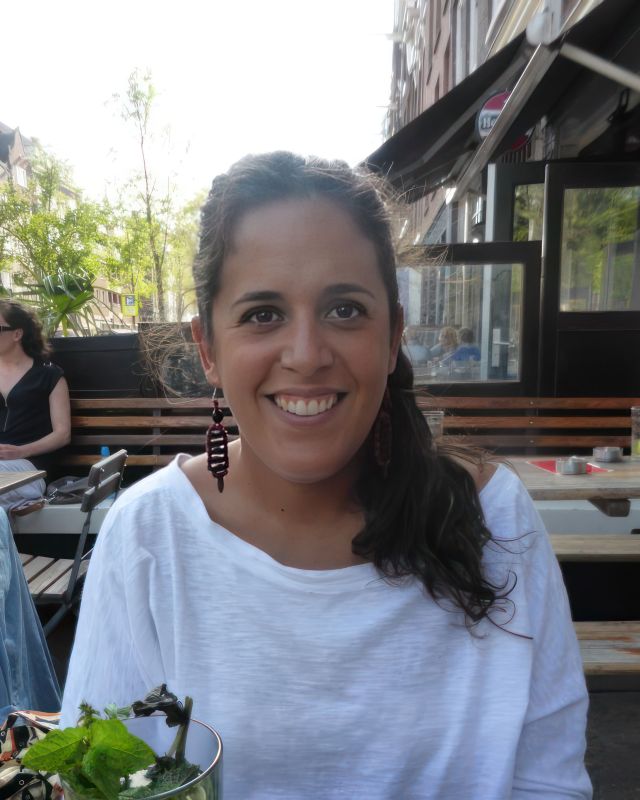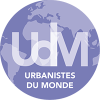Portrait

Portrait of Sarah Zouheir - Urban Policy 2010 - Advisor to the Cabinet of the Chairman of the Management Board of the Société du Grand Paris
Posted on | Alumni Portrait
In a sunny garden in May, In Situ met the dynamic Sarah Zouheir, who graduated from the Urban Policy double degree (STU-LSE) in 2010. If her profile is marked by the fight against territorial inequalities, 6 years after graduation, she has already been able to work in a wide range of structures: think-thank, ministerial cabinet and now Société du Grand Paris.
Outside of work, she finds her energy in running in the streets of Paris: a nice way to do urban tourism.
From Menton to Morocco, from Paris to London: a university career with an international dimension
Of Moroccan origin, Sarah began her higher education in Menton, on the Sciences Po campus specialising in the Middle East and Mediterranean. Interested in international and European relations, she took advantage of her 3A to do an internship at the Mission of Morocco to the European Union. In the summer of 2008, her internship ended on a high note with the creation of the Union for the Mediterranean, but she was disappointed that she had not been sufficiently involved in the concrete. She did not feel that she was on the right scale to act. She then changed her orientation plans and decided to turn to the STU master's degree. And with a view to maintaining her international outlook and improving her English, she, who was reluctant to do research, naturally chose to do the double degree with the London School of Economics.
With hindsight, she says that the STU master's degree was a good choice. On the one hand, it allows her to deepen her 'track science' skills: quality of writing, oral expression, analysis and synthesis, but above all, it is increasingly recognised in the urban environment and allows her to learn to make concrete proposals, to analyse the interplay of actors, to position herself and to mobilise partners.
His year at the LSE left him with good memories, even if it should be noted that the cost of living in London is frustrating for students. There, in parallel to her studies, she worked for Walterton and Elgin Community Homes, which gave her experience of participatory housing. Finally, she completed her master's degree with a thesis on the issue of gender in cities, which is still little studied in France, and more specifically on women and transport in developing countries.
Focus on urban policy: from sociological research to ministerial cabinet
After graduation, Sarah worked at the Montaigne Institute, first as an intern, then on a fixed-term contract. She took part in a study entitled "Banlieue de la République" directed by Gilles Kepel, which led to a book of the same name and a course given at Sciences Po this year (common training for M1 students). It is a monograph on the Clichy-sous-Bois and Montfermeil agglomeration, carried out five years after the riots of autumn 2005 that made them famous. It is based on more than 100 interviews with inhabitants or former inhabitants on the themes of housing, education, employment, politics and religion. For Sarah, participating in this project was a great adventure.
In July 2012, she joined the cabinet of the Minister Delegate in charge of cities, François Lamy. Then, one minister followed another, and she worked directly with N. Vallaud-Belkacen (in charge of Women's Rights, City, Youth and Sports), M. El Khomri (Secretary of State for Urban Policy) and finally P. Kanner (in charge of City, Youth and Sports). The themes she deals with are varied: firstly, youth and integration, then the implementation of City Contracts and urban renewal. She does not hide the fact that this experience was intense and required sacrifices in her personal life, but she does not regret it in the least. It enabled her to learn to work in an emergency but above all to understand how a decision is taken at the highest level (How do you make a law? How do you implement it?); skills that will be precious for the rest of her career.
A new page, a new position at the Société du Grand Paris
Indeed, since December 2015, Sarah has left the ministerial cabinet to become an advisor to the cabinet of the chairman of the executive board of the Société du Grand Paris (SGP). She likes the ambition of the project, which is pharaonic, and which through mobility will change the way of living in a metropolis that sometimes ignores itself. Improving the connection between the territory's existing assets means giving the territory a metropolitan influence, increasing the productivity of companies, and fighting against territorial inequalities by opening up the area.
Its mission is threefold: to steer the SGP's strategic committee, to deal with international relations and to monitor parliamentary affairs. In concrete terms, she is responsible for leading the Strategic Committee, which is made up of 182 members (elected officials and economic representatives), by organising working groups that meet once a month. The themes of the working groups are the development of the station areas and the construction sites linked to the Grand Paris (What acceptability for the local residents? What potential for local development and job creation?) She also manages relations with foreign delegations or companies interested in the project, either because they would like to invest in it or because they have a similar project and are looking for advice...
At the SGP, Sarah notes that there are many former STUs, either in internships or in positions, yet the topics they deal with are varied and complementary. The partnership with the Urban School is institutionalised and long-lasting, since the SGP regularly sponsors STU collective projects or GLM Capstone projects.
Sarah's advice
- Cultivate your network, go to conferences. The master's degree is a first door to the urban world, then it's up to us to make ourselves known.
- Be surprised by opportunities and seize them. Sarah did not plan her career path but she took advantage of the opportunities that came her way, without regret.
Portrait of Clémentine Tribouillard - City / Territorial and Urban Management Major 2003-04
Posted on August 24, 2016
At the beginning of 2016, In Situ set out to discover its first alumni from the 'city major'. We met Clémentine Tribouillard, by skype, class of 2003-2004. Clé…
Caroline Megglé - STU 2008 - Freelance Journalist
Posted on May 12, 2016
In Situ had the pleasure of speaking with Caroline Megglé, who graduated from STU in 2008, about her rather atypical career. A passionate jack-of-all-trades, s…
 English
English  Français
Français 




